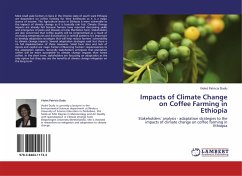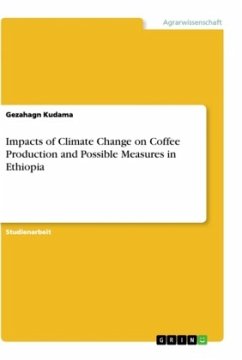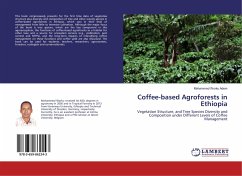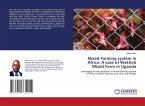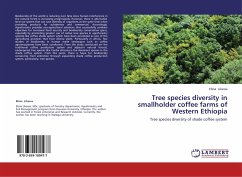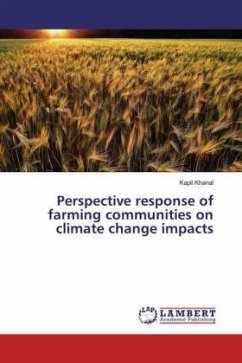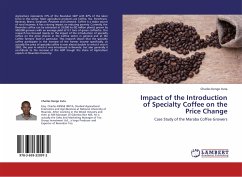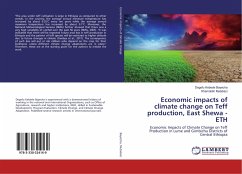Most small scale farmers in Gera in the Oromio state of south west Ethiopia are dependent on coffee farming for their livelihoods as it is a major source of income. The Agriculture sector in Ethiopia is more vulnerable to the impacts of climate change as it is basically rain fed. Climate Change impacts are already felt because farmers have reported decreasing yields and emergence of pests and diseases at Limu Plantation farm. Stakeholders are also concerned that coffee quality will be compromised as a result of increasing temperatures and disturbances in rainfall patterns.It is important to develop adaptation strategies that will help reduce farmers`vulnerability to climate change impacts. Several adaptation strategies exist but there is no full implementaion of these measures. Small farm sizes and lack of inputs and capital are major factors influencing farmers`responsiveness to the adaptation options. Generally stakeholders anticipate that plantation coffee will be more susceptible to climate change impacts than forest coffee. In the short term, stakeholders are focussing on adaptation as the only option but they also see the benefits of climate change mitigation on the long term.
Bitte wählen Sie Ihr Anliegen aus.
Rechnungen
Retourenschein anfordern
Bestellstatus
Storno

